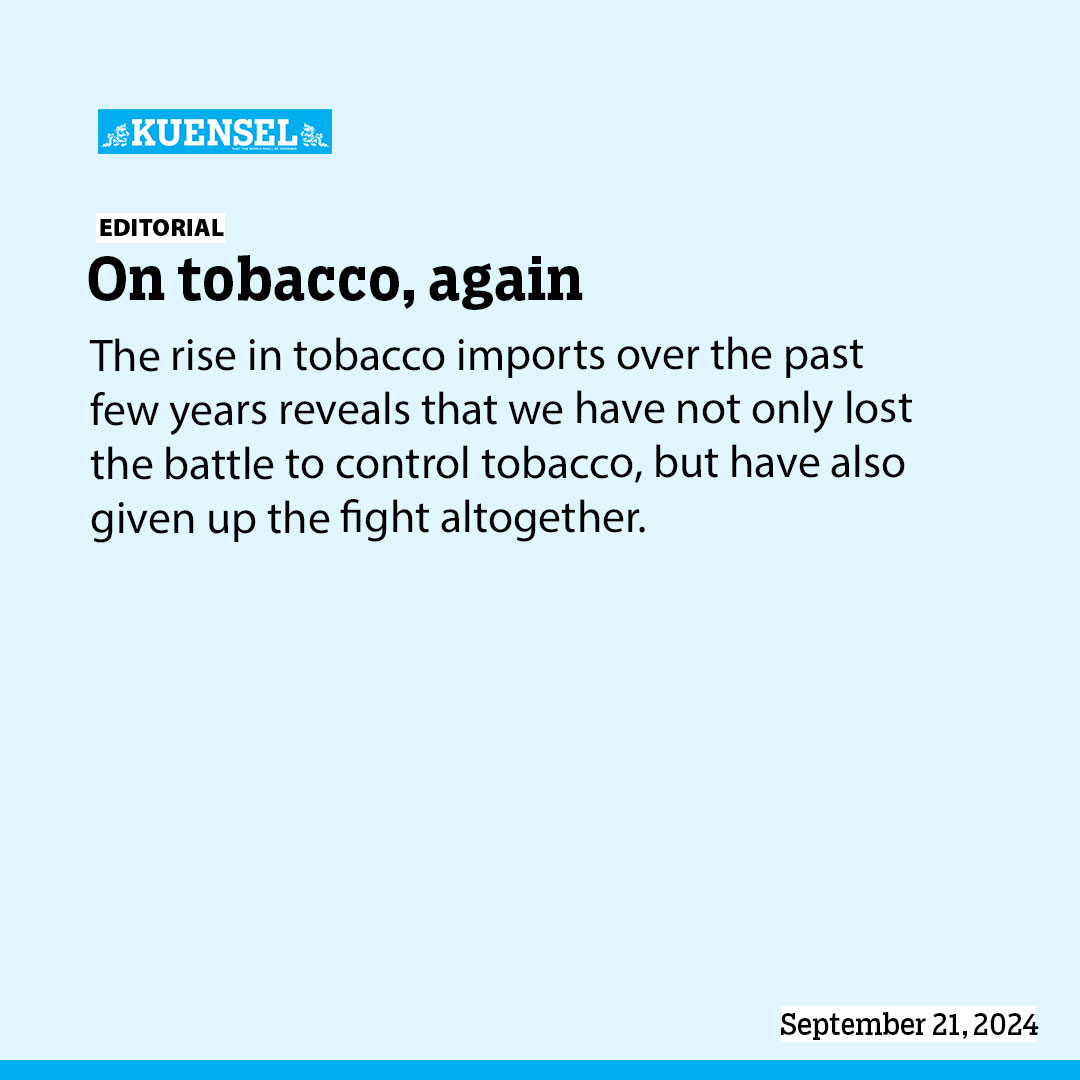The rise in tobacco imports over the past few years reveals that we have not only lost the battle to control tobacco, but have also given up the fight altogether.
What began as a temporary measure to regulate tobacco sales during the pandemic has spiraled into an uncontrollable situation, with tobacco and its products now dominating import lists. The statistics are staggering. In just six months, we have imported Nu 337 million worth of tobacco products. What is even more alarming, beyond the health implications, is the growing import from countries other than India.
Nu 14million worth of tobacco in three months from countries other than India will have repercussions on our already depleting foreign currency reserves. The forex regulation is so strict on individuals that a Bhutanese is allowed only USD 3,000 a year. Import of cigarettes from as far as South Korea would have a bigger dent on the forex reserve.
Judging by these numbers, it appears as if Bhutan—the first country to “ban” tobacco—has abandoned its commitment. In reality, Bhutan never outrightly banned tobacco ;it restricted its use through taxation and regulations, prohibiting smoking in public places. Smokers could still purchase and use tobacco as long as they adhered to the laws.
While the Covid-19 pandemic is long behind us, the lessons we learned during that time have informed our policy decisions—except, it seems, in the case of tobacco. The relaxation of tobacco import laws was intended as a temporary measure in response to an emergency. Smuggling during the pandemic posed a greater health risk, and adjustments to laws were necessary. However, we have yet to revisit and tighten these policies now that the pandemic has passed
In the meantime, the market is flooded with cheap cigarettes, including imports from third countries. Tobacco has become even more enticing, with new flavors and attractive packaging—chocolate, blueberry, and watermelon masking the nicotine within. This trend is drawing in even non-smokers, tempting them to try a puff and, inevitably, become hooked
Tobacco still is a serious public health issue. According to the 2023 National Health Survey, tobacco use is one of the most significant behavioral risk factors for non-communicable diseases. The survey found that 29.8 percent of Bhutanese aged 15-69 currently use tobacco, with 14.2 percent smoking and 19.8 percent using smokeless tobacco. Furthermore, 17.65 percent reported exposure to secondhand smoke at home, and 52.53 percent experienced secondhand smoke at work.
Given our population size, tobacco use in Bhutan is alarmingly high. It not only threatens public health but also clashes with our religious values. There are numerous reasons to reconsider our tobacco policy, but one of the most immediate is the pressure on our foreign reserves—Nu 14 million worth of imports from third countries in just three months.
No one will suffer from the absence of flavored cigarettes from South Korea. However, many will suffer if our policies fail to prevent youth from adopting this harmful habit at an early age.
The time to act is now.


